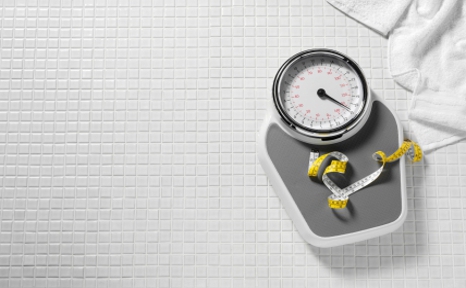


Being overweight puts you at a greater risk for osteoarthritis and worsens symptoms for all forms of the disease. But while losing weight is hard – especially for people with arthritis – dropping even a few excess pounds can make a big difference in pain.
Osteoarthritis, the most common form of arthritis, is the wear-and-tear form of arthritis caused by degeneration of joint cartilage and the underlying bone. Research shows that being overweight is a clear risk factor for getting osteoarthritis. For example, overweight women have nearly 4 times the risk of knee osteoarthritis than non-obese women; for overweight men the risk is 5 times greater than their non-obese counterparts.
Furthermore, while being overweight doesn’t make you more likely to get other forms of arthritis, like rheumatoid arthritis, it can make those arthritic symptoms much worse.
The scientific reasons for this are fairly simple: More weight puts more pressure on your joints.
Research has shown that during walking the hips, knees, and ankles bear three to five times a person's total body weight. For every pound a person is overweight, three to five pounds of extra weight is added to joints during walking.
Maybe this doesn’t sound like a lot to you, but imagine walking around with a 15 backpack on all day. That’s the equivalent of just five or less extra pounds of bodyweight. Now, imagine the relief you might experience taking that backpack off. A 10-pound weight loss can remove 30 to 50 pounds of extra stress from the joints.
Also, extra body fat increases inflammation in the body. Inflammation is associated with both osteoarthritis and inflammatory arthritis, and negatively impacts symptoms.
Has your doctor talked to you about weight loss as a treatment option? Recent research suggests your answer might be, "No."
National scientific guidelines recommend conservative, non-medical treatment like weight loss, exercise and activity modification as a first step. But studies released earlier this year showed many doctors are skipping these steps and jumping straight to medications, and when medications don't relieve the pain, surgery. The suspected reasons: These methods were more likely to provide faster relief and didn’t require as much effort from patients.
Yes, taking a pill is easier than losing weight through diet and exercise. But putting in the extra work may make huge differences in the long-term management of your arthritis. As an added bonus, you’ll improve your overall health and decrease risk of other disease.
Many factors can play a role in being overweight. Diet and exercise are two you can control to some degree. For tips on cooking, diet and exercises that are good for people with arthritis, read these articles: "Exercising with Arthritis: An Introduction;" "Diet Changes to Improve Arthritis;" "How Losing Weight Can Help Arthritis Pain;" and, "Tips and Gadgets for Cooking with Arhtiritis."
Copyright © www.orthopaedics.win Bone Health All Rights Reserved